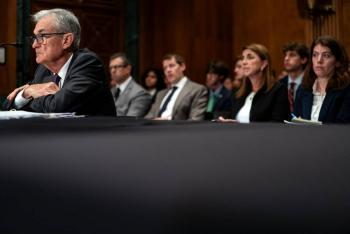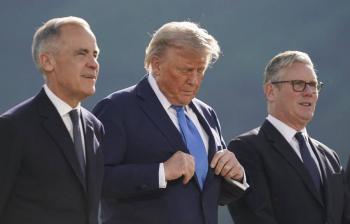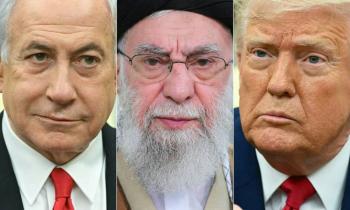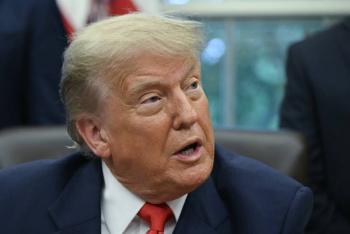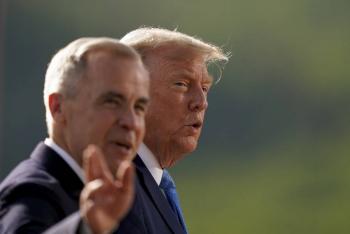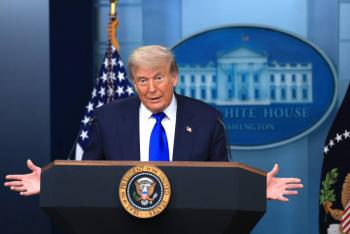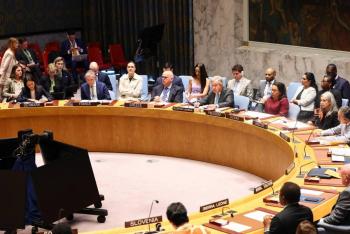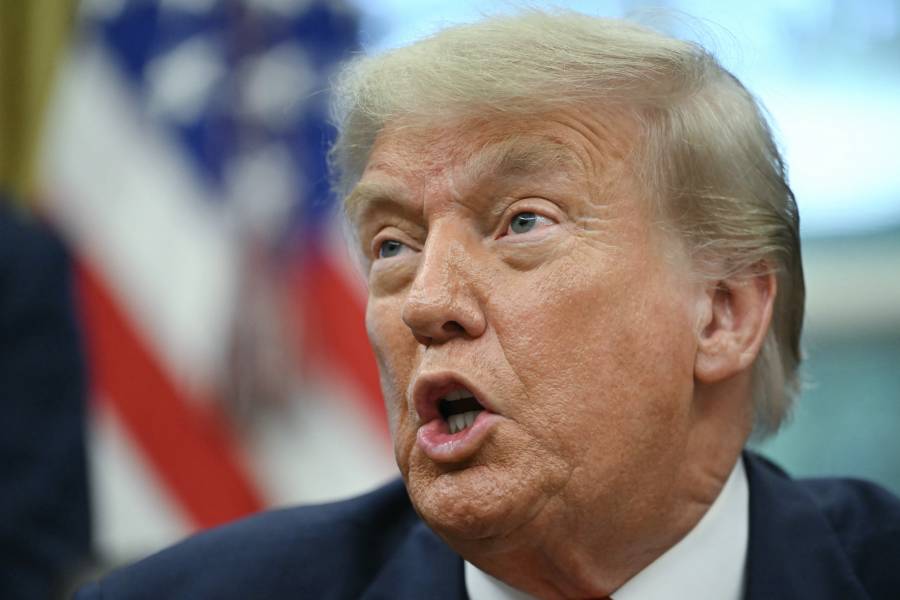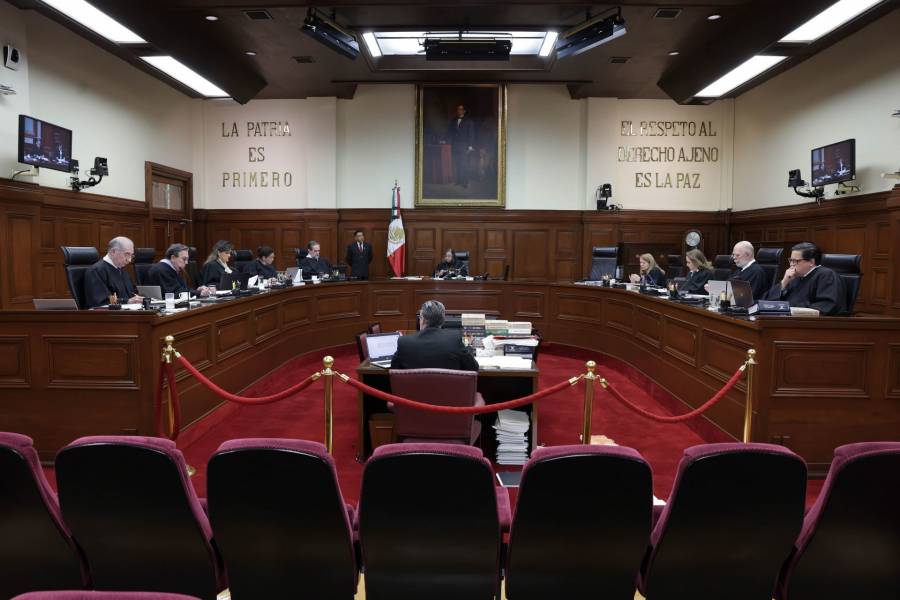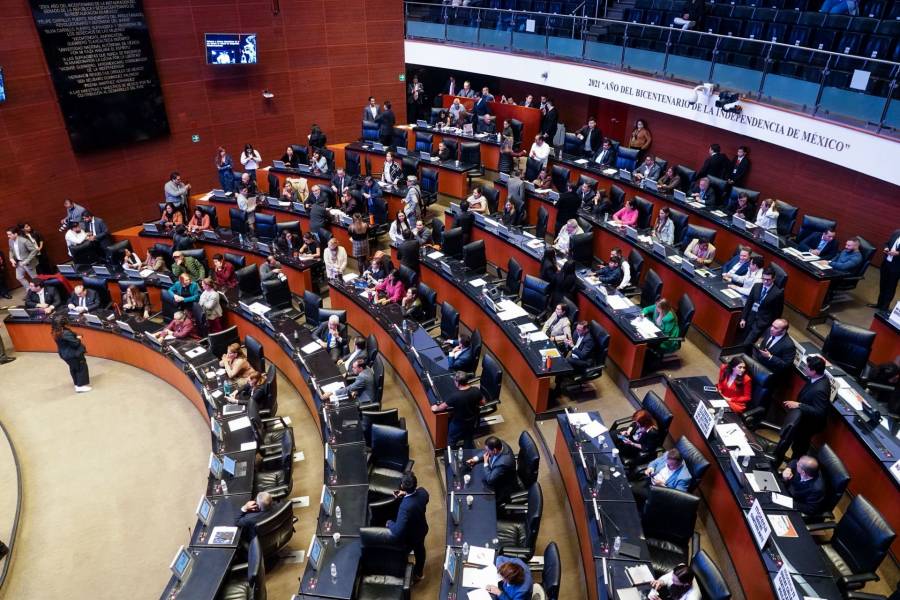 Síguenos @ContraReplicaMX
Síguenos @ContraReplicaMX
Trump propone reducir los aranceles a China al 80% antes de las negociaciones comerciales
Global
AFP
US President Donald Trump signaled on Friday that he could lower sky-high tariffs on Chinese imports, as the rival superpowers prepare for trade talks in Switzerland over the weekend.
"80% Tariff on China seems right!" Trump wrote on his Truth Social platform. Levies on the Asian manufacturing giant are currently 145 percent, with cumulative duties on some goods reaching a staggering 245 percent.
In retaliation to the steep tariffs from Washington, China has slapped 125 percent levies on US goods.
Trump added that it was "Up to Scott B." -- US Treasury Secretary Scott Bessent -- who will confer with China's Vice Premier He Lifeng this weekend in Geneva to try to cool the conflict roiling international markets.
US Trade Representative Jamieson Greer will also attend the talks.
"The President still remains with his position that he is not going to unilaterally bring down tariffs on China. We need to see concessions from them as well," White House Press Secretary Karoline Leavitt told reporters later Friday.
"As for the 80 percent number, that was a number the president threw out there. And we'll see what happens this weekend," she added.
The cripplingly high duties amount to an effective trade embargo between the world's two largest economies, with private shipping data already pointing to a sharp slowdown in goods flowing from China to the United States.
- 'A good sign' -
"The relationship is not good," said Bill Reinsch, a senior advisor at the Center for Strategic and International Studies (CSIS), referring to current ties between Washington and Beijing.
"We have trade-prohibitive tariffs going in both directions. Relations are deteriorating," said Reinsch, a longtime former member of the American government's US-China Economic and Security Review Commission. "But the meeting is a good sign."
"I think this is basically to show that both sides are talking and that itself is very important," Xu Bin, professor of economics and finance at the China Europe International Business School, told AFP. "Because China is the only country that has tit-for-tat tariffs against Trump's tariffs."
Beijing has insisted the United States must lift tariffs first and vowed to defend its interests.
Bessent has said the meetings in Switzerland would focus on "de-escalation" and not a "big trade deal."
The head of the Geneva-based World Trade Organization (WTO) on Friday welcomed the talks, calling them a "positive and constructive step toward de-escalation."
"Sustained dialogue between the world's two largest economies is critical to easing trade tensions, preventing fragmentation along geopolitical lines and safeguarding global growth," WTO Director-General Ngozi Okonjo-Iweala said, according to a spokesperson.
Swiss President Karin Keller-Sutter also sounded an upbeat note.
«Ayer el Espíritu Santo estuvo en Roma», dijo el viernes, refiriéndose a la elección del papa León XIV. «Esperemos que ahora viaje a Ginebra para pasar el fin de semana».
- 10 por ciento de línea base -
Bessent y He se reunirán dos días después de que Trump revelara lo que llamó un acuerdo comercial histórico con Gran Bretaña, el primer acuerdo con cualquier país desde que desató una ola de aranceles globales radicales el mes pasado.
El documento de cinco páginas, no jurídicamente vinculante, confirmó a los nerviosos inversores que Estados Unidos está dispuesto a negociar un alivio para sectores específicos de los aranceles recientes, en este caso sobre los automóviles, el acero y el aluminio británicos.
A cambio, Gran Bretaña aceptó abrir sus mercados a la carne de vacuno y otros productos agrícolas estadounidenses.
Pero el impuesto base del 10 por ciento sobre la mayoría de los productos británicos permaneció intacto, y Trump sigue "comprometido" a mantenerlo vigente para otros países en conversaciones con Estados Unidos, dijo Leavitt a los periodistas.
Reinsch, del CSIS, dijo que uno de los problemas prácticos al iniciar las negociaciones de Ginebra son las marcadamente diferentes estrategias de negociación de los dos países.
"El enfoque de Trump suele ser vertical", dijo. "Quiere reunirse con (el presidente chino) Xi Jinping y cree que si ambos logran reunirse, pueden lograr un gran acuerdo y luego dejar que sus subordinados arreglen los detalles".
"Los chinos son lo contrario", dijo. "Quieren tener todos los asuntos resueltos y todo acordado a niveles inferiores antes de que haya una reunión de líderes".
burs-da/acb
© Agencia France-Presse
Envíe un mensaje al numero 55 1140 9052 por WhatsApp con la palabra SUSCRIBIR para recibir las noticias más importantes.
SG/CR
Etiquetas
2025-06-28 - 21:18
2025-06-28 - 18:59
2025-06-28 - 17:46
2025-06-28 - 17:10
2025-06-28 - 12:42
2025-06-28 - 12:41
2025-06-28 - 12:40
2025-06-28 - 12:37
2025-06-27 - 21:37
2025-06-27 - 20:43
2025-06-27 - 13:06
2025-06-27 - 12:45
2025-06-27 - 12:43


